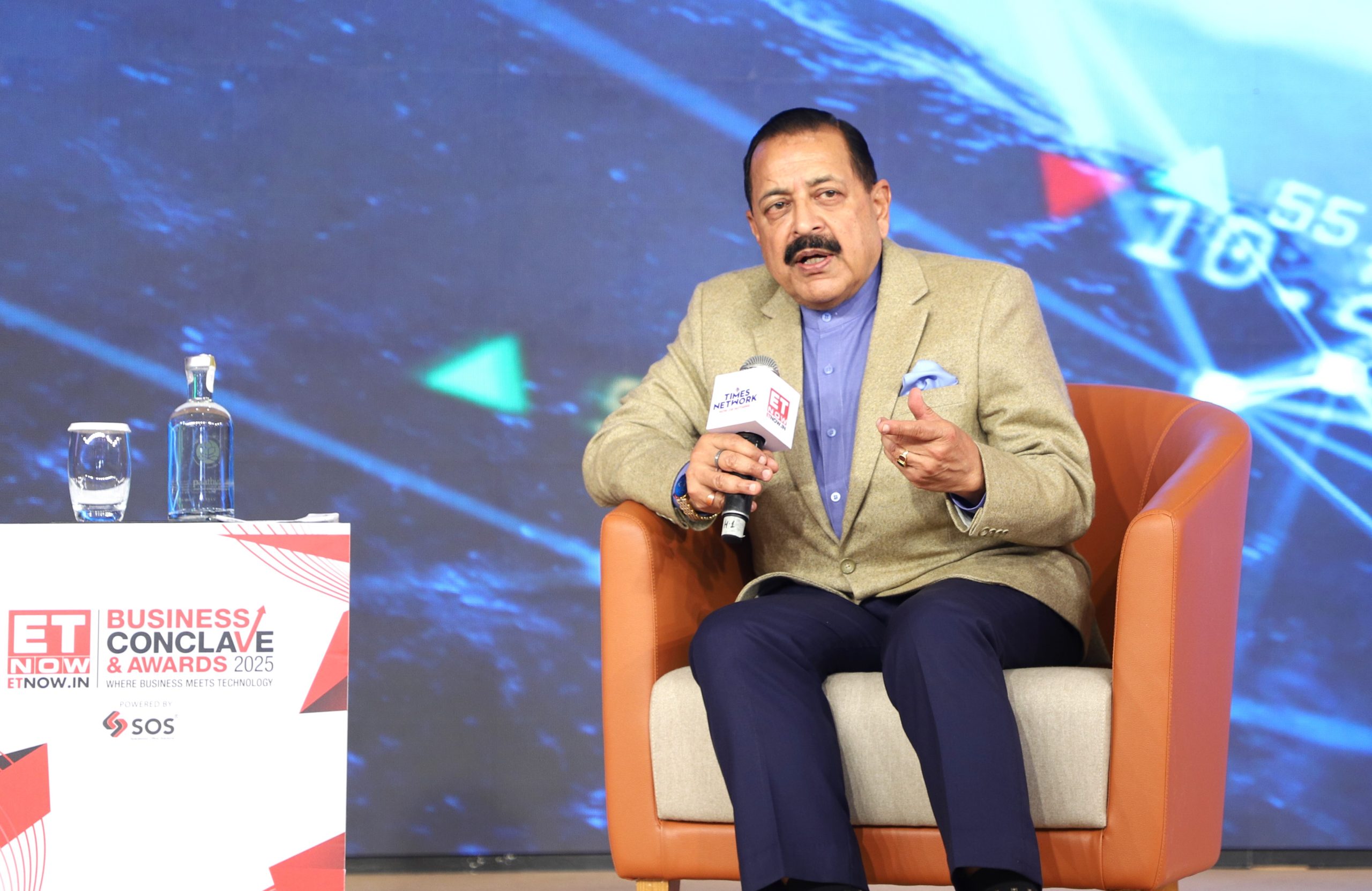NEW DELHI, Feb 25: “India’s space economy is projected to grow more than fivefold, increasing from $8 billion to $44 billion in the coming years, significantly contributing to the nation’s overarching goal of reaching a $5 trillion economy.” These remarks were made by Dr. Jitendra Singh, Union Minister of State (Independent Charge) for Science and Technology, Earth Sciences, PMO, Atomic Energy, and Space, during the “Business Conclave” hosted by the Times Network at Hotel Taj today.
The Minister emphasized the notable advancements in India’s space sector, attributing much of this success to the escalating space budget. He noted that, under Prime Minister Narendra Modi’s leadership, the space budget has nearly tripled—from ₹5,615 crore in 2013-14 to ₹13,416 crore in 2025-26—evidencing the government’s determination to stimulate growth within the sector.
Dr. Singh identified 2014 as a crucial turning point in India’s space endeavors, when Prime Minister Modi made a groundbreaking decision to “unlock” the space sector, signifying a proactive transformation in government policies. He acknowledged the supportive environment fostered by the Modi administration, which has opened Sriharikota to the public and encouraging private sector investments, including Foreign Direct Investment (FDI).
This strategic approach, facilitated by the personal involvement of PM Modi, is creating a synergy between governmental and non-governmental sectors through initiatives like NewSpace India Limited (NSIL) and In-SPACe, thereby enhancing innovation and opportunities within the space industry. He stated that first-generation space startups are now thriving businesses.
Dr. Singh also celebrated the historic achievements of the Indian Space Research Organization (ISRO), highlighting its milestone of being the first nation to successfully reach the Moon’s South Pole.
While ISRO’s journey commenced after other countries had already sent humans to the Moon, Dr. Singh pointed out that India is now at the forefront of space exploration, utilizing cost-effective and indigenous technologies. He referenced the Chandrayaan mission, accomplished for just ₹600 crore—half the expenditure of similar missions conducted by other nations—underscoring India’s emergence as a global leader in space, science, and technology.
The Minister highlighted the transformative role of space technology across various sectors, mentioning initiatives like the Swamitva Scheme, which promotes satellite mapping and drone technology for land record mapping, reducing dependency on revenue officials.
Furthermore, Dr. Singh discussed ISRO’s contributions to enhancing communication and connectivity, affirming India’s self-sufficiency in space and satellite technology, noting that ISRO has successfully launched 433 foreign satellites, generating revenue of €292 million and $172 million.
He also stressed India’s commitment to cultivating an inclusive space ecosystem, where women play vital roles in key projects like Chandrayaan and Aditya L1. Additionally, he pointed to India’s growing stature on the global stage, mentioning events such as the U.S. inviting an Indian astronaut to the International Space Station, along with prospective collaborations with international space agencies.
The Minister acknowledged the untapped potential in India’s Himalayan, coastal, and marine resources, which are anticipated to fuel economic growth and innovation in the years ahead. He emphasized the essential role the space sector will play in unlocking these resources for national benefit.
Dr. Singh also highlighted the flourishing startup ecosystem in India, with Jammu & Kashmir emerging as an exemplar in agri-tech startups. He commended the Aroma Mission: Purple Revolution, which was featured in Prime Minister Modi’s “Mann Ki Baat” and showcased at the Republic Day Parade, empowering youth in the region. The increasing influx of tourists to Jammu and Kashmir each season reflects the region’s advancement and burgeoning peace.
In conclusion, Dr. Jitendra Singh asserted India’s commitment to leading the global space race with entirely indigenous, cost-effective, and forward-looking technologies aimed at sustainable growth. He reaffirmed that India’s space sector is poised not only to follow the global trajectory but also to establish its leadership position on the international stage, heralding a new era of space exploration.


Leave a Reply